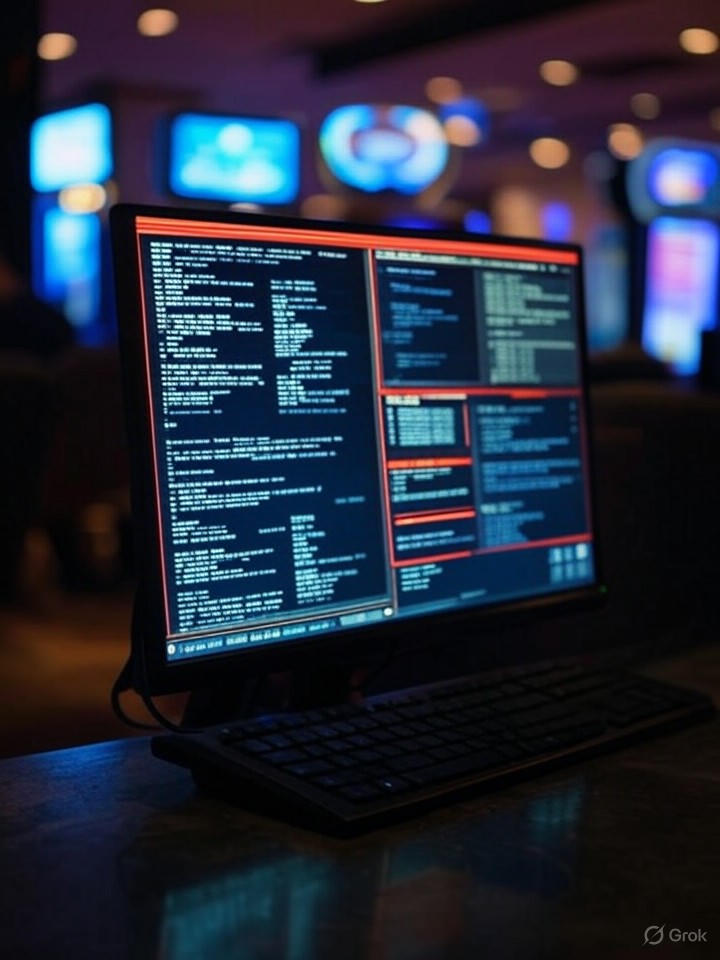Ransomware Attack on Las Vegas Casinos
In the vibrant center of Las Vegas, where fortunes can change in seconds, a significant cyberattack occurred in 2023, revealing the weaknesses of even the most secure entertainment conglomerates. Major casino chains like MGM Resorts International and Caesars Entertainment fell prey to a ransomware attack that disrupted operations, affecting everything from gaming machines to hotel bookings and resulting in losses estimated at over $100 million for MGM alone. What began as a typical day on the Strip descended into turmoil, with guests unable to access their rooms, ATMs nonfunctional, and entire systems incapacitated. Federal investigators later identified a group called Scattered Spider, a collective of young hackers who combined social engineering with advanced malware techniques.
Execution and Financial Impacts of the Attack
The sophistication of the attack stemmed from its execution: hackers gained access to networks via phishing tactics and exploited unpatched system vulnerabilities, encrypting sensitive data and demanding ransoms in cryptocurrency. Reports indicate that Caesars paid $15 million to regain control, while MGM faced a prolonged 10-day outage affecting various services from gaming floors to corporate communication. This incident highlighted a worrying trend wherein cybercriminals increasingly target high-value sectors like hospitality, where operational downtimes equate to significant financial losses.
Teen Hacker’s Involvement and Modus Operandi
A teenage suspect linked to the hack was arrested in September 2025, as detailed in reports from Casino.org. The juvenile, associated with the Scattered Spider group, surrendered during an FBI probe connecting him to the cyber intrusions of 2023. Officials described the operation as “sophisticated,” involving custom command-and-control servers and encrypted communications, with cybersecurity experts analyzing a botnet comprising over 127,000 compromised IoT devices used in the attack.
Impact on Nevada’s Digital Infrastructure
The repercussions of the attack were felt beyond the casinos, affecting state systems as well. Shortly before the teen’s arrest, Nevada experienced a separate ransomware attack that forced government office closures, including DMV locations, as reported by the Las Vegas Review-Journal. Officials confirmed that data was compromised, leading to multi-day shutdowns and revealing the vulnerability of public networks in a tourism and technology-dependent state.
Industry Reactions and Lessons Learned
This attack served as a critical wake-up call for casino operators, prompting them to invest in AI-based threat detection and enhance employee training to counter social engineering. MGM’s estimated $100 million loss, covering lost revenue and recovery efforts, has been analyzed in detail by sources like KTLA, focusing on how the breach impacted loyalty programs and consumer trust in an industry reliant on confidentiality.
Looking Forward: Addressing Cyber Threats
The tactics employed by Scattered Spider illustrate a shift towards decentralized threat groups, with a blend of youthful ingenuity and professional hacking capabilities signaling new challenges. Industry specialists emphasize the need for improved cybersecurity measures, including mandatory breach reporting and international cooperation, to mitigate risks in the hospitality sector. Although the recent arrest may deter future incidents, experts agree that significant reforms are vital to safeguard against evolving threats.



